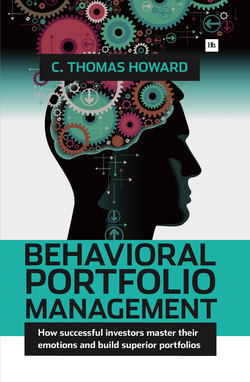Читать книгу Behavioral Portfolio Management - C. Thomas Howard - Страница 8
На сайте Литреса книга снята с продажи.
A professional journey
ОглавлениеIn the early 1970s, I took a course that forever changed the way I thought about the world around me. It was a basic economics course taught by Professor Billy Hughel Wilkins. In his soothing Texas accent, he showed us how economists think about the world. What I found so fascinating was that many things did not turn out to be as they seemed. That is, conventional wisdom regarding economic matters and the United States in general were often wrong. By carefully looking at the evidence on important economic issues facing the US, we came to conclusions that were at odds with those frequently reported by the press and which were generally accepted.
This approach fascinated me and led to a career in which I seldom accept at face value what I am told about the economy and markets. Instead my modus operandi became exploring the underlying data in order to figure out what was really going on. I was struck with how often what was stated as truth about a situation was incorrect. I was hooked on the economist’s way of thinking from that time on and spent the remainder of my graduate program focused on the tools used for testing empirically the explanations put forward regarding the economy and markets.
Many years later I read Steven Levitt and Stephan Dubner’s Freakonomics, which fitted hand in glove with my own view of how best to understand complex issues. They explore everyday matters by uncovering relationships using data that virtually everybody else ignores when trying to understand what is really going on. They examine issues such as illicit drug-selling organizations and the decline of crime over the last several decades, coming up with often surprising and controversial conclusions.
Levitt and Dubner’s view of economics is that if morality is how we would like people to act, then economics is how they actually act. In their view, incentives are the cornerstone of modern economic life and to understand why people or organizations do what they do, you need to understand the incentives driving them. This turns out to be incredibly important for understanding financial markets and, in particular, the institutions that have grown up around these markets.
